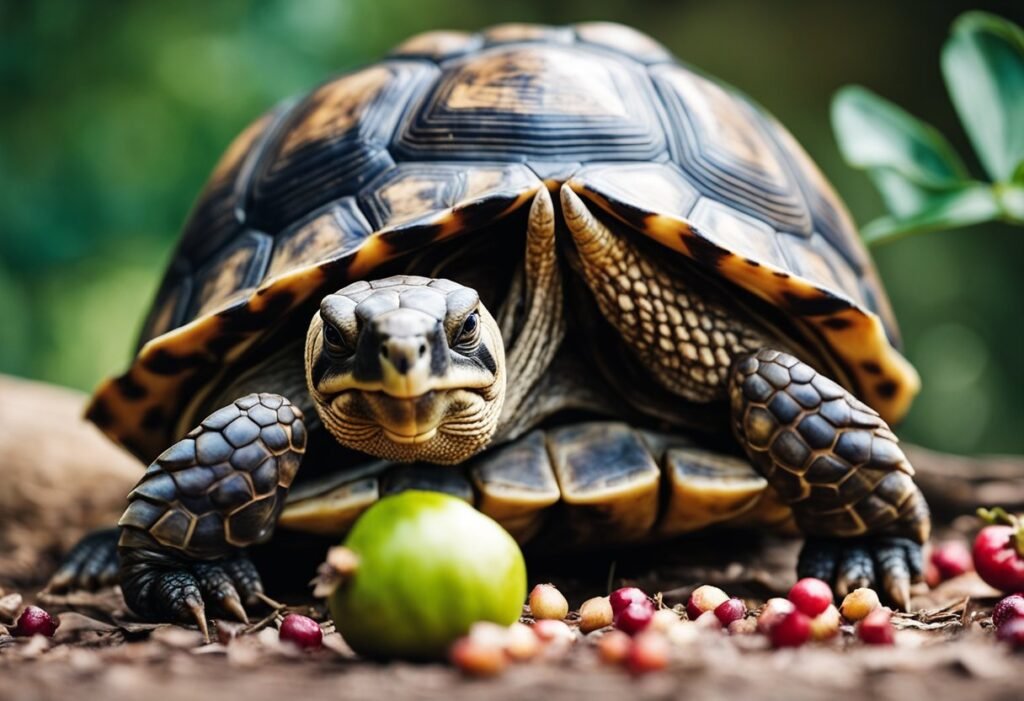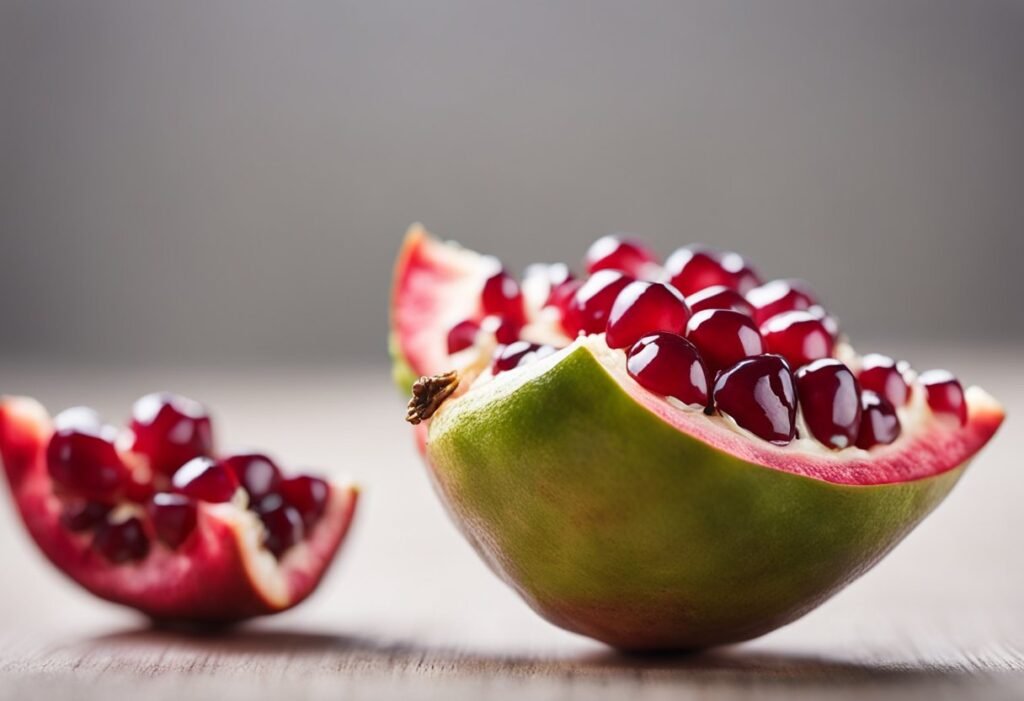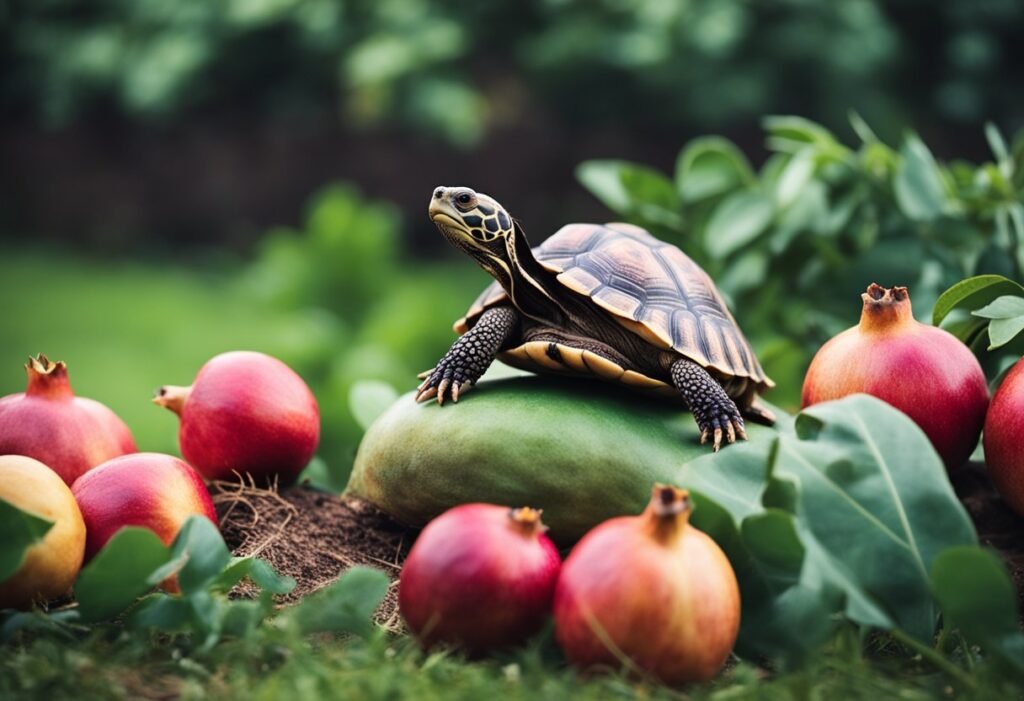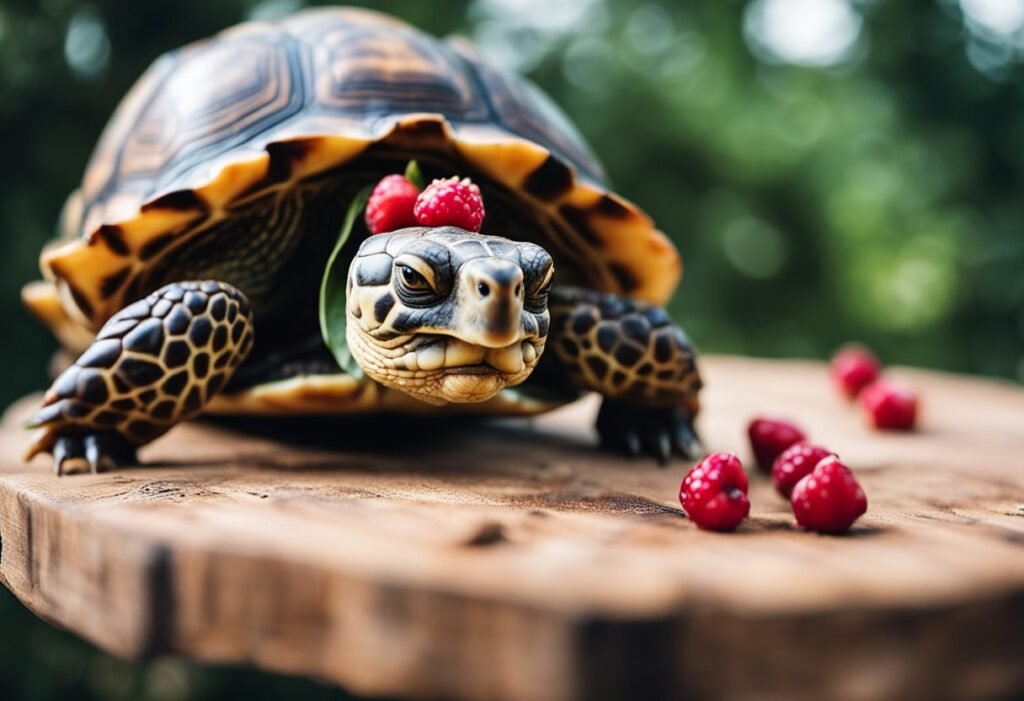Tortoises are herbivores, and their diet is mainly composed of vegetables and fruits. While some fruits are safe for tortoises to eat, others can be harmful to their health. Pomegranates are a popular fruit known for their sweet and tangy taste and numerous health benefits. However, can tortoises eat pomegranate, and is it safe for them?
As tortoise owners, it is essential to know what foods are safe for our pets and what to avoid. Pomegranates are high in fiber, vitamins, and antioxidants, making them a healthy snack for humans. But can tortoises digest pomegranates, and are they beneficial to their health? In this article, we will explore whether tortoises can eat pomegranates and the potential risks and benefits of feeding them to your pet tortoise.
Tortoise Diet Basics

When it comes to feeding tortoises, it’s important to understand their basic dietary needs. Tortoises are herbivores, which means they eat only plant material. A healthy tortoise diet should consist of a variety of vegetables, fruits, and leafy greens.
It’s important to note that tortoises have different dietary requirements depending on their species, age, and size. Some tortoises, such as the Russian tortoise, have a more herbivorous diet, while others, like the sulcata tortoise, require a higher fiber intake.
In general, a good rule of thumb is to feed your tortoise a diet that is high in fiber and low in protein and fat. This will help ensure that your tortoise is getting the nutrients it needs to stay healthy and active.
When feeding your tortoise, it’s important to provide a balanced diet that includes a variety of fruits and vegetables. Some good options include:
- Leafy greens such as kale, collard greens, and dandelion greens
- Vegetables such as carrots, squash, and sweet potatoes
- Fruits such as strawberries, raspberries, and apples
It’s also important to provide your tortoise with a source of calcium, such as cuttlebone or calcium powder. This will help ensure that your tortoise’s shell stays strong and healthy.
Overall, a healthy tortoise diet should be well-balanced and provide your tortoise with all the nutrients it needs to thrive.
Understanding Pomegranates

Pomegranates are a type of fruit that is native to Iran and Northern India. They are known for their juicy, sweet, and tangy flavor. The fruit is typically round and about the size of a grapefruit, with a thick, leathery skin that ranges in color from yellow to deep red.
The inside of a pomegranate is filled with small, juicy seeds called arils. Each aril is surrounded by a thin, edible membrane that is packed with antioxidants and other beneficial compounds. Pomegranates are rich in vitamins C and K, as well as folate and potassium.
When it comes to feeding pomegranates to tortoises, it’s important to keep in mind that they should be given in moderation. While pomegranates are generally safe for tortoises to eat, they are also high in sugar and can cause digestive issues if given in excess.
One way to incorporate pomegranates into a tortoise’s diet is to mix a small amount of the fruit with their regular food. This can provide a tasty treat while also ensuring that the tortoise is getting a balanced diet.
Overall, pomegranates can be a healthy and delicious addition to a tortoise’s diet when given in moderation. As with any new food, it’s important to introduce pomegranates slowly and monitor the tortoise’s reaction to ensure that they are tolerating it well.
Pomegranates and Tortoises

Pomegranates are a delicious fruit that is packed with nutrients. But can tortoises eat pomegranate? In this section, we will explore the health benefits and potential risks of feeding pomegranates to tortoises.
Health Benefits
Pomegranates are rich in vitamins and minerals that are essential for the overall health of tortoises. Some of the health benefits of pomegranates include:
- Rich in vitamin C: Pomegranates are a great source of vitamin C, which is important for boosting the immune system and promoting healthy skin.
- High in fiber: Pomegranates are high in fiber, which can help regulate digestion and prevent constipation in tortoises.
- Antioxidant properties: Pomegranates are rich in antioxidants, which can help protect the cells from damage caused by free radicals.
Potential Risks
While pomegranates can offer many health benefits to tortoises, there are also some potential risks to consider. Here are a few things to keep in mind:
- High in sugar: Pomegranates are high in sugar, which can be harmful to tortoises if they consume too much. It is important to feed pomegranates in moderation.
- Hard to digest: The seeds of the pomegranate are hard to digest and can cause digestive issues if consumed in large amounts. It is important to remove the seeds before feeding pomegranates to tortoises.
- Allergies: Some tortoises may be allergic to pomegranates, so it is important to monitor your pet closely after feeding them this fruit.
In conclusion, pomegranates can be a healthy and tasty treat for tortoises when fed in moderation and with caution. As always, it is best to consult with a veterinarian before introducing any new foods to your pet’s diet.
How to Feed Pomegranates to Tortoises
When it comes to feeding pomegranates to tortoises, there are a few things you should keep in mind to ensure your tortoise stays healthy and happy. Here are some tips for feeding pomegranates to your tortoise:
- Always wash the pomegranate thoroughly before feeding it to your tortoise. This will help remove any dirt or pesticides that may be present on the fruit.
- Remove the seeds from the pomegranate before feeding it to your tortoise. While the seeds are edible, they can be a choking hazard for your tortoise.
- Cut the pomegranate into small pieces that are easy for your tortoise to eat. This will help prevent choking and make it easier for your tortoise to digest the fruit.
- Feed pomegranate to your tortoise in moderation. While pomegranates are a healthy treat for your tortoise, they are also high in sugar. Too much sugar can be harmful to your tortoise’s health.
- Offer a variety of fruits and vegetables to your tortoise in addition to pomegranates. This will help ensure your tortoise gets a balanced diet.
By following these tips, you can safely and responsibly feed pomegranates to your tortoise as a healthy and nutritious treat.
Other Fruits for Tortoises

While pomegranates are a great fruit for tortoises, there are many other fruits that can also be included in their diet. Here are a few other fruits that you may consider feeding your tortoise:
- Berries: Strawberries, raspberries, and blueberries are all safe for tortoises to eat. They are also high in antioxidants and vitamin C, making them a great addition to their diet.
- Melons: Watermelon and cantaloupe are both safe for tortoises to eat. They are also high in water content, which can help keep your tortoise hydrated.
- Apples: Apples are a great source of fiber for tortoises. However, be sure to remove the seeds and core before feeding them to your tortoise.
- Bananas: Bananas are a great source of potassium for tortoises. However, they should only be fed in moderation due to their high sugar content.
When feeding your tortoise fruit, it is important to remember that fruit should only make up a small part of their diet. Too much fruit can lead to digestive issues and obesity. Additionally, be sure to always wash fruit thoroughly before feeding it to your tortoise.
Conclusion
In conclusion, pomegranate is a safe and healthy treat option for tortoises. It is rich in vitamins, minerals, and antioxidants that can benefit their overall health. However, as with any new food, it is important to introduce it in small quantities and monitor your tortoise’s reaction.
While pomegranate seeds are safe for tortoises to consume, it is recommended to remove the outer skin and white membrane as they can be difficult to digest. Additionally, it is important to avoid feeding your tortoise any portion of the fruit that has been treated with pesticides or other chemicals.
As always, it is important to remember that a balanced and varied diet is key to keeping your tortoise healthy. Pomegranate can be a great addition to their diet, but should not be relied upon as the sole source of nutrition. Consult with your veterinarian or a reptile nutrition expert for more information on how to provide the best possible diet for your tortoise.
Frequently Asked Questions
What vegetables are safe for tortoises to eat?
Tortoises are herbivores and require a diet rich in fiber and nutrients. Some safe vegetables for tortoises include kale, collard greens, dandelion greens, and turnip greens. It is important to avoid feeding tortoises vegetables high in oxalic acid, such as spinach and beet greens, as well as those high in goitrogens, such as broccoli and cabbage.
Can tortoises eat cranberries?
While cranberries are not toxic to tortoises, they are not a recommended part of their diet. Cranberries are high in sugar and can cause digestive issues for tortoises if consumed in large quantities.
Are dates a suitable food for tortoises?
Dates are not recommended as a regular part of a tortoise’s diet. They are high in sugar and can cause digestive issues if consumed in excess. It is best to stick to feeding tortoises a variety of greens and vegetables.
Is it safe for tortoises to eat lychee?
Lychee is not recommended for tortoises. It is high in sugar and can cause digestive issues if consumed in large quantities. Stick to feeding tortoises a variety of greens and vegetables.
Can Hermann tortoises eat spinach?
Hermann tortoises should not be fed spinach. Spinach is high in oxalic acid, which can bind with calcium and cause health issues for tortoises.
What fruits should be avoided in a tortoise’s diet?
Tortoises should avoid fruits high in sugar, such as bananas, mangoes, and grapes. Citrus fruits should also be avoided as they can cause digestive issues. It is best to stick to feeding tortoises a variety of greens and vegetables as their primary diet.





